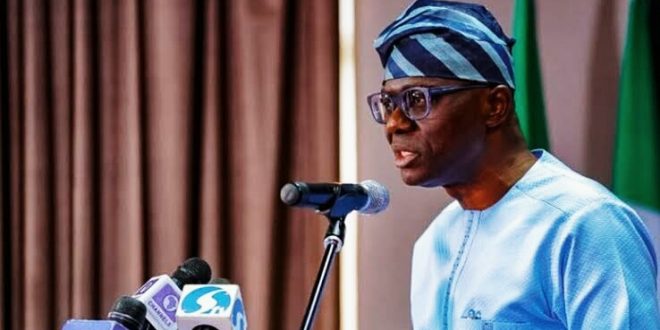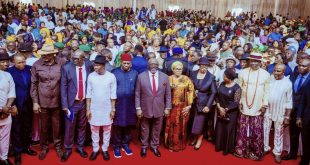The Lagos State Governor, Babajide Sanwo-Olu, has called on the Federal Government of Nigeria to let go some of it exclusive functions, saying that it can provide instant solutions to the security challenges bedevilling Nigeria.
While delivering a paper at the Freedom Online third annual lecture with the theme: “Nigeria: Foundation, Fundamentals and Future”, the governor, believes that the “flawed federalist ideals enshrined in the 1999 Constitution have continuously limited the power of the states to pursue individual development at their own pace”.
The Governor was represented by his deputy, Babafemi Hamzat.
He, therefore, stressed that Nigeria must holistically address the “fundamental question” of federalism if the political class is serious about lifting the country out of its current quagmire.
The governor further stressed that provision of security must be “highly” decentralised, as states must play significant roles in providing internal security, while the Federal Government must face the issue of defence, foreign policy, border controls, currency, and customs among others.
Sanwo-Olu also called for a review of the terms of fiscal federalism between the centre and state governments, saying that the Federal Government must consciously devolve more responsibilities and resources to states and local governments as those entities are the closest to the people.
“Today, the revenue sharing formula is 52.6 per cent for the Federal Government, 26.7 per cent to the States and 20.6 per cent to local governments. The Federal Government takes the lion share, out-muscling the State and Local Governments, which are the closest tiers to the populace. State and local governments ordinarily should be drivers of development. As it is today, it is common knowledge that most states depend on monthly allowance from Abuja to survive,” he said.
He, however, encouraged Nigerians not to lose hope in spite of the challenges facing the nation.
According to him, the ongoing revolution in agricultural and investment in infrastructure by the current administration has started to gradually change the outlook of the national economy.
He said: “What is clear to me is that to achieve these reforms that we require, many of our laws need to change. We need to re-write and update obsolete laws to bring them in line with the realities of today.
“We must believe in what we produce, and encourage everyone who seeks to make a difference in this regard. We must also consume what we produce. One advantage we have is our population; we have a local market that is sufficient to sustain as much local production as we can achieve. Many other countries are too small to enjoy this kind of privilege.”
 South Daily
South Daily





